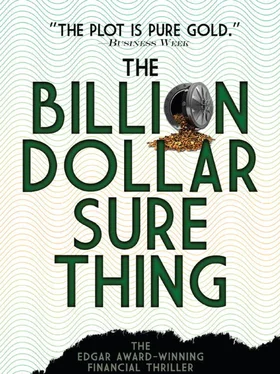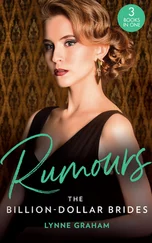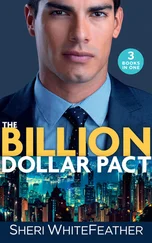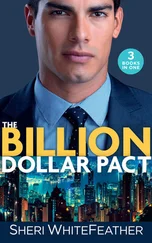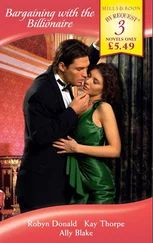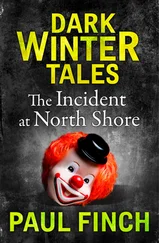“Now, Bernoulli. Do you mean that you suspect that Bollinger might have been involved in some sort of hanky-panky? That is totally ridiculous.”
“I’m not indicating we suspect anything or anybody. We just know that some documents seem to be missing and that the explanations are either too pat or too wildly improbable. Thus a rather simple question about Bollinger.”
“Well, I did see Bollinger very fleetingly in the Grill Room of the Savoy, yes. He was, I believe, dining with one of the monetary officials from Washington. But it was merely a fleeting impression, as I just indicated. They left together shortly after I noticed them. We did not even greet. Haven’t seen him since.”
“Tell me a bit about Bollinger’s character. I believe that you have had rather close relations with the man, both professionally and privately, for quite a number of years.”
Hofer said, “Well, I think ‘close’ is the wrong word. We dealt with each other on a regular basis, yes. Also, we have more than once ended up sitting beside each other at various dinner parties and the like. I can tell you this without any doubt. He’s the best man in Europe, and maybe the world, in the field of international monetary matters. Absolutely tops.”
Hofer’s phone rang. “Excuse me, George,” he said, and then listened very carefully for a full minute before hanging up.
“Unbelievable. The dollar is being bought all over Europe. The short artists appear to be running for cover.”
Bernoulli’s face showed his astonishment. “Come again, Dr. Hofer? I’ve been on the train during the last hour. What’s happened to the Russians and all?”
“Amazing thing. I know, since I have been closely watching the activity in our foreign exchange department all week. For obvious reasons. Around eight forty-five the Eastern Europeans apparently switched from the major sellers of yesterday to major buyers. The Germans followed a few minutes later. Then the news came out about the Russian sales of gold, and the tide now seems to have turned.”
“The Russians are selling gold?” asked Bernoulli, incredulously.
“Yes. It’s been confirmed, according to our people. Am I disturbing some of your theories, George?”
Touché.
“Right now I’m not quite sure. You might be. It seems I keep changing theories about every other hour. The latest one popped up on the train on the way over. Maybe it should pop right down again.”
“The Bollinger theory?”
“I would not exactly put it that way. But let’s say, I’m interested in knowing a bit more about Bollinger. What are his political views?”
Hofer reached for the cigar box, a delicately designed Persian piece, gold filament superimposed upon thin silver, with the usual enamelled patterns.
“He has none. But I see what you’re driving at. Maybe Bollinger and the Russians have been working together, against the dollar. Not a chance. And the events of the past few minutes obviously prove it.”
“I agree.”
“It would seem to me that our Mr. Rosen is a much better candidate.”
“I also agree there. Do you know a man named Rolf Lutz of Swiss Security Consultants A.G. in Geneva?”
“Now, what was that again, George?” answered Hofer.
“Lutz. Security Consultants. Do you know him?”
Hofer replied, “What in the devil does that have to do with Bollinger or Rosen?”
“I’m not sure. You do know him, I assume.”
“Know him?” replied Hofer. “I would hardly put it that way. I’ve dealt with him on more than one occasion, yes. We use his company for various problems which we unfortunately have as a bank. Increasingly so during the past few years, I’m sorry to say. His people are good. The best in the country, in my judgment. That’s it.”
“Right,” said Bernoulli. He stood up.
This caught Hofer a bit off balance. That was normally quite difficult to accomplish.
“So, George Bernoulli—master policeman,” came his sarcastic comment. “I’m not sure you carry it off all that well.”
Bernoulli was not in the least perturbed. “Dr. Hofer, I’ve heard that quite often before.”
Both men started walking toward the door.
“Say, tell me, how is silver doing these days, Dr. Hofer?”
That one struck home. Hofer turned directly toward Bernoulli and gave him a look that indicated the strongest possible warning that enough was enough. The façade of etiquette splintered.
“Ask your father, George,” was Hofer’s reply.
His handshake was the briefest possible as Bernoulli left. The great man was offended.
As Hofer returned to his desk, he was furious. “That impertinent young jackass,” he said aloud, and in an ugly voice.
At ten o’clock the South Africans arrived. They were met by Hofer and Kellermann. After lunch Hofer instructed his secretary to send in a large cold bottle of champagne. At two forty-five the South Africans left by the garage entrance, just as they had come.
Within the next fifteen minutes Hofer had talked to both Sir Robert Wínthrop in London and David Mason in New York. Both agreed to meet Hofer in Zurich two days later. At the Grand Dolder, for lunch.
At three o’clock new massive buying of gold bullion occurred in both London and Zurich. The price which had fallen to $74 an ounce following the news from Russia suddenly shot back to $77 an ounce. The dollar, which had recovered almost all of the ground it had lost during the week of massive speculation, followed by panic short-covering, suddenly began to fall once more. This time nobody could put the finger on any one source of this action. It seemed to be happening simultaneously in Zurich, London, and New York.
At three forty-five Herr Kellermann took a call from Stanley Rosen. Yes, the funds had arrived from Nassau. Yes, the bank was proceeding on Rosen’s instructions. No, there was nothing more Rosen could contribute at the moment. Yes, he would note that Rosen was going to Basel early the next morning. Indeed he would keep in contact with him over the weekend if necessary. At four o’clock Kellermann reported all this to Dr. Hofer.
At nine that evening Dr. Bernoulli was received by the Swiss minister of finance. The great relief that both had felt during most of the day had totally disappeared as news of the new flareup in the gold and dollar markets spread. The meeting was short. At eleven-fifteen Bernoulli received an anonymous telephone call. He, in turn, was on the phone to the minister minutes later. Finally, a course of action was set.
“THAT will be $396.50, Mr. Rosen. It includes the phone calls. By the way, did you have any extras with breakfast this morning? That information always takes some time to reach the cashier.”
“No. In fact I did not have breakfast. I’m planning to have it on the train. There will be a dining car, I hope.”
“Where are you leaving for, sir?”
“Basel.”
“On the seven forty-six?”
“Yes.”
“It always has a diner.”
Stanley gave the man $400 in travellers cheques and carefully counted the change when he received it.
“You would like a taxi, Mr. Rosen?”
“Yes, if you please.”
Fifteen minutes later, after a torturously slow taxi ride, he alighted at the Zurich Bahnhof. Just half-past eight in the morning and the place was teeming with people. All grim as the weather outside, where grey clouds swept across the sky pushed by a cold wind that seemed to be everywhere, including the Bahnhof. Rosen bought a ticket and then hurried to gate 12 where his train was waiting. He must have walked past at least ten cars before he found one marked first class. It was divided into the usual continental compartments. Stanley chose a nonsmoker. He swung his massive suitcase up onto the rack but kept his coat on. It was icy. He began his search for the dining car, passing through another half dozen second-class cars, mostly crowded with Swiss soldiers dressed in a sickly green and all packing machine pistols. None appeared older than eighteen. At last the aroma of coffee met Rosen’s grateful nose. Not only that, but the car he entered was warm, very warm.
Читать дальше
